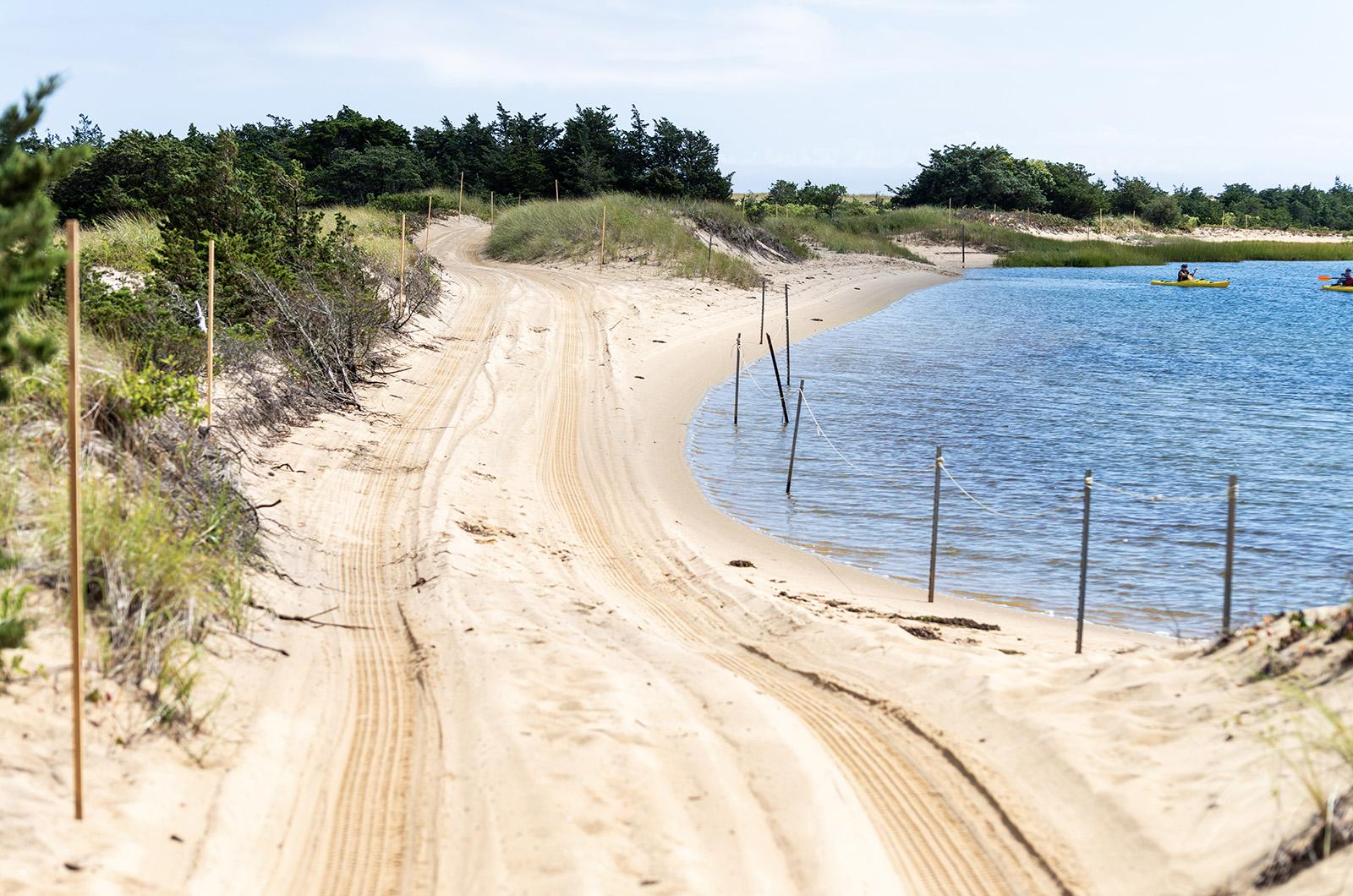I am writing to set the record straight. The Oct. 3 opinion piece in the Vineyard Gazette, Stakeholder Collaboration Key to Finding Solutions written by president and CEO of the Trustees of Reservations (TTOR), does not illustrate a fair picture of what is happening out on Cape Pogue.
Let’s examine the definition of the word “stakeholder” for a moment. A stakeholder is nothing more than a person who has an indirect interest in the outcome of an organization. They are not shareholders, they are not property owners, and they have no vested legal rights. The “Martha’s Vineyard Beach Management Plan Working Group,” described by TTOR as a collaborative effort to engage with Cape Pogue stakeholders, neither reached any compromises nor found any solutions with those who have a direct interest in what happens on Cape Pogue: the landowners.
If anything, the working group consisted of several unproductive Zoom calls where TTOR representatives talked in circles, withheld data and did not provide responsive answers to landowner questions. In fact, only one landowner representative was permitted to attend. The landowners were told that one of their voices was equal to that of all the other permitees.
That seemed odd because I am not entitled to decide what happens to someone else’s property simply because I have purchased a sticker. The fact that the entitlement exclusively stems from authorization granted by an organization who, for years now, has been selling access to Cape Pogue without the necessary permitting is even more absurd.
It became clear that the working group was designed to generate the appearance of bipartisanship. Make no mistake, once the window-dressing was over, the 2023 BMP presented to the Conservation Commission was a unilateral document that exclusively serves TTOR’s agenda of commercial exploitation out on Cape Pogue. Beach access groups could not be happier. Of course, it’s not their property that’s being trespassed on.
How do we know it’s exploitative? Because in 1992, the former TTOR director, Frederick Winthrop, Jr., submitted a letter to the Massachusetts Secretary of Transportation and Construction where he rhetorically asks: “how many off-road vehicles (ORVs) can be permitted to enter CPWR without adversely affecting the fragile natural resources of the barrier beach? Research conducted along the Atlantic coast over the past 25 years concludes that the answer is zero.”
Zero is extreme. The landowners have never wanted the number to be zero. The landowners would welcome the opportunity to work with another beach steward to responsibly restore beach access to everyone. All the landowners have ever wanted was for TTOR to restrict the widespread commercial enterprise they have exponentially developed out on Cape Pogue and to keep their OSV permittees off private land. Unfortunately, TTOR has lost all institutional credibility, and it has become virtually impossible to work with them. I don’t think that sentiment is solely held by the landowners either.
Case in point: the county pulled Norton Point from their management oversight, and TTOR hopes to stick the taxpayers with a $4,000,000 bill to repair the Dyke Bridge bulkhead.
The Trustees grew so self-assured under past leadership that they didn’t deem it necessary to re-apply for permitting or draft a BMP when they were directed to. Even now, under current leadership, it appears like this whole exercise in Wetlands Protection Act compliance is a mere inconvenience. I have little faith that once public scrutiny wanes, TTOR will comply with their directives. There is no doubt that they will go right back to doing business as usual.
In today’s age, there has been a growing consensus that if you repeat a phrase over and over again it will eventually become true. I don’t subscribe to that theory, and I hope you don’t either. That is why it’s so troubling that certain interested parties persist in repeating the slogan “the public has a right to historical beach access.”
That sounds nice, but it’s simply not accurate.
The public has a right to use the intertidal zone, not the right of way. The 1891 Partition deeded ROW was granted exclusively to proprietors, not indirect stakeholders, and not permitees. The recorded deed explicitly uses the language “proprietors,” connoting ownership. The fact that some Chappy residents were granted permissive use of the trails in the 1940’s and 1950’s does not convert the entirety of Cape Pogue trails into public ROWs in perpetuity, for everyone. That’s not how prescriptive easements work.
How do we know the ROW is not public? The following point illustrates that concept perfectly: Try driving your Jeep Wrangler out to the Gut to go fishing with your family without an OSV permit. A TTOR ranger stops you at the gatehouse and asks where your permit is. You say that you have been exploring these beach trails every summer since you were a kid, and your father before you. You tell the ranger that he has no right to charge you $350 for an OSV permit because, well, the ROWs are historically open to public use!
Do I even have to tell you what happens next? Hopefully the ferry line is not too long when you get turned around.
Joseph Russo lives in Newton and spends the summer on Chappaquiddick.




Comments (6)
Comments
Comment policy »